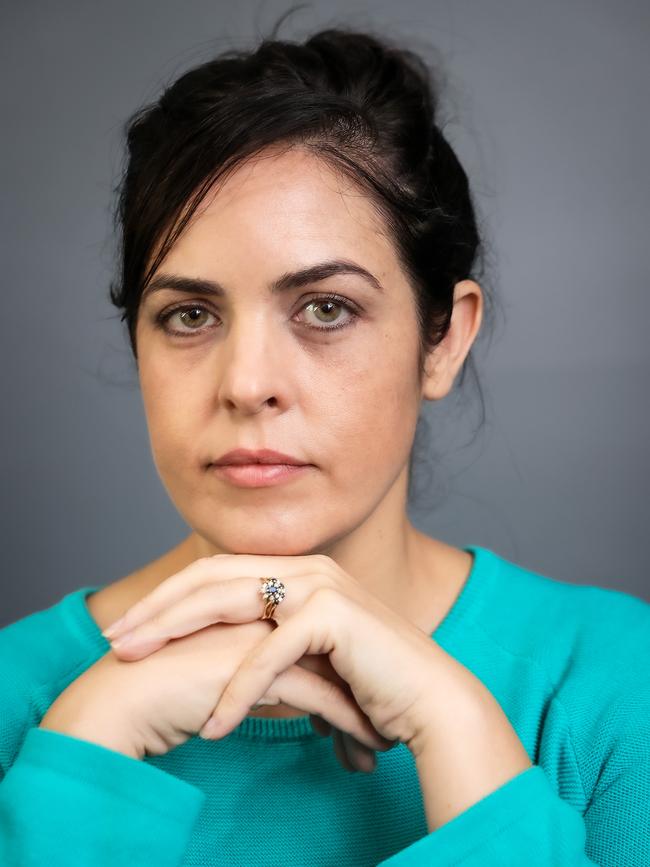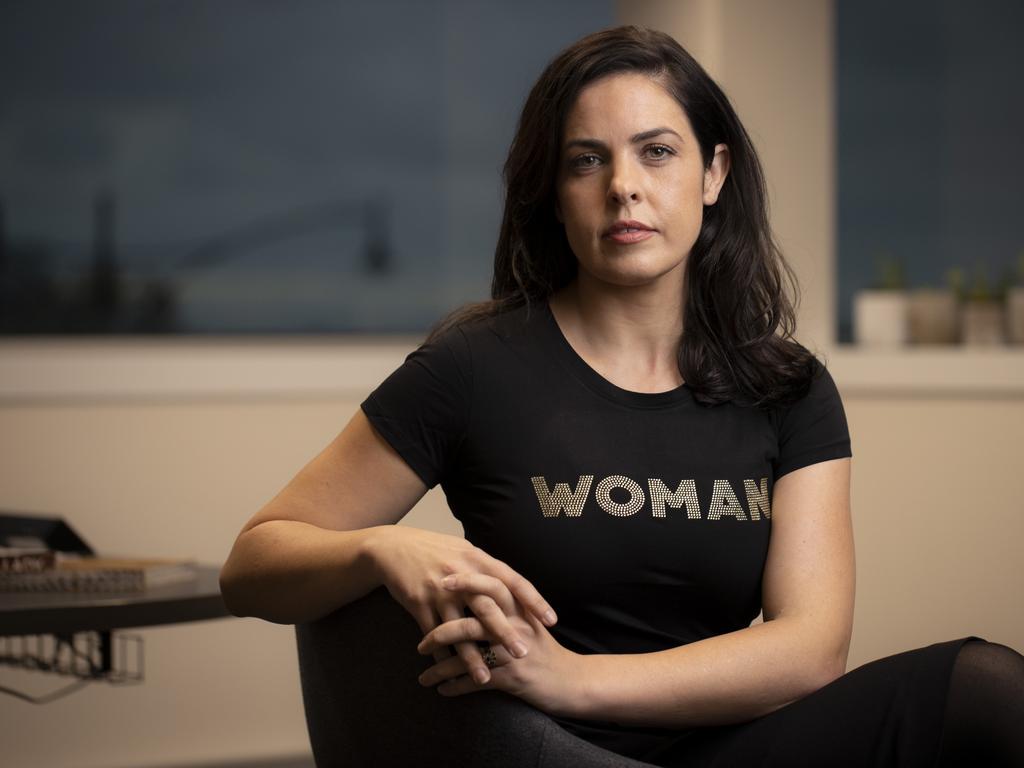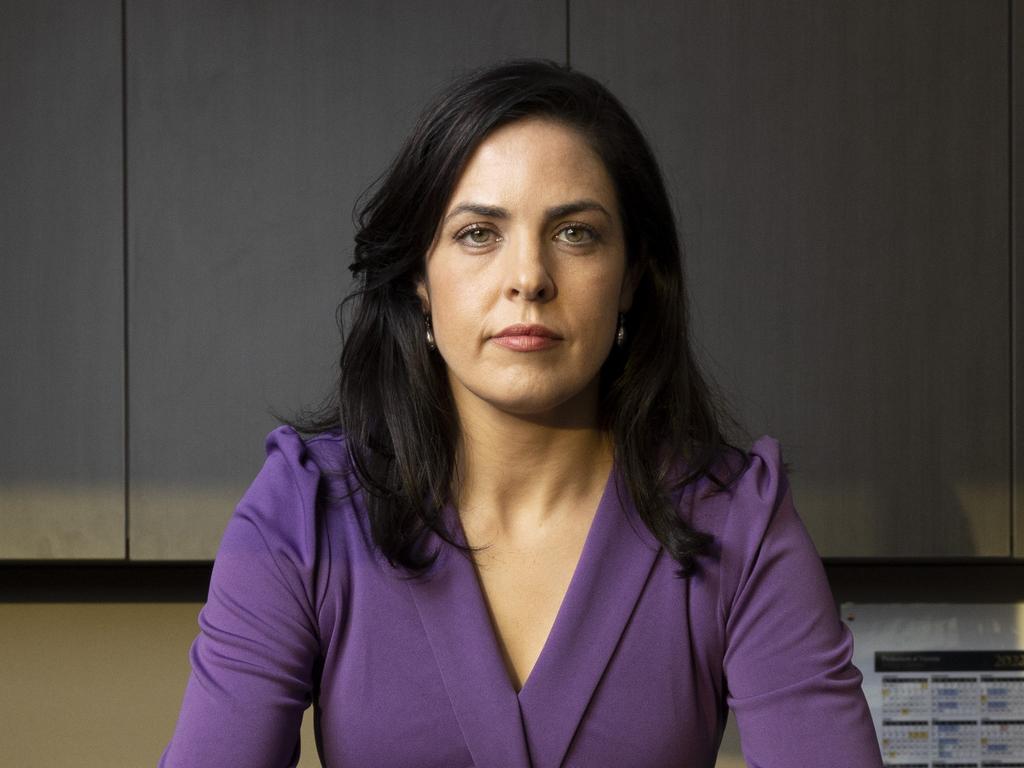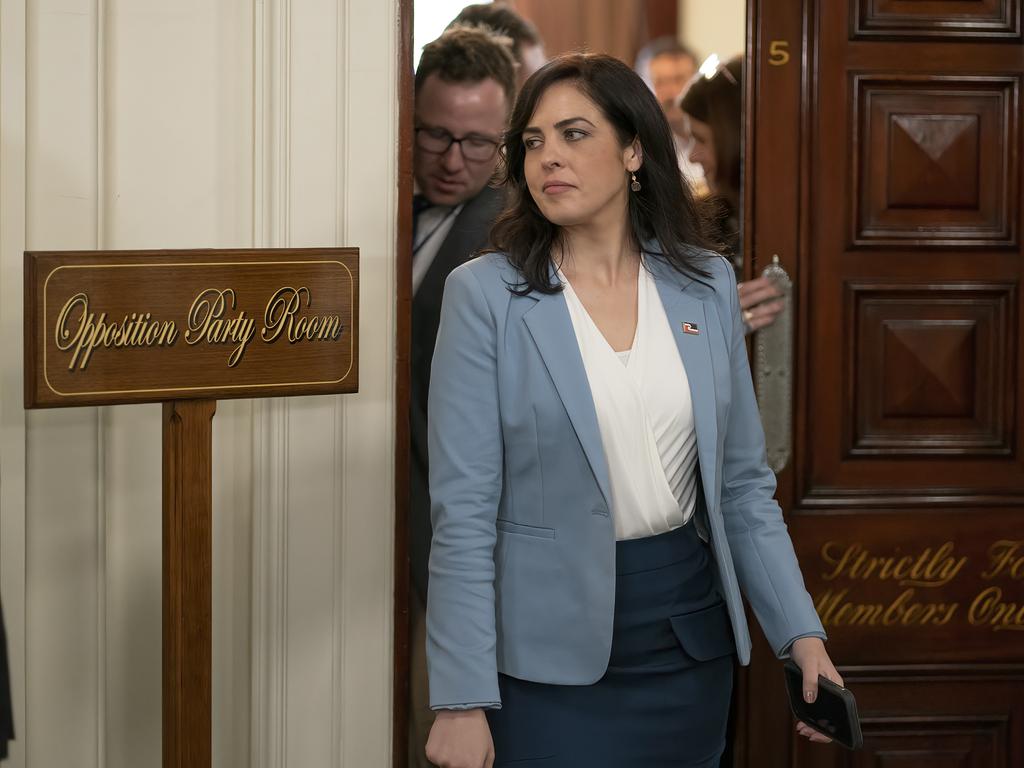Victorian Liberals are in chaos over Moira Deeming and may need outside help
The Victorian Liberal Party is facing a similar dynamic that has hindered the South Australian branch for decades and federal intervention may be the only cure.

Not since conservative political forces split in South Australia roughly 50 years ago has there been a more perplexing, complex and frustrating landscape for centre right politics.
In very simplistic terms, the South Australian split, which was characterised by city-country divisions for decades, appears to be emerging in the Victorian Liberal Party.
Specifically in the state parliamentary party, where there are concerns that a Melbourne elite led by state leader John Pesutto is running a show that will have less and less relevance to traditional country, regional and outer suburban constituencies.
There is white-hot anger among some federal Liberal MPs about the way Pesutto blew up his relationship with Deeming rather than managing what many know to be a contradictory, difficult and inconsistent landscape.
“He needs to look to John Howard who knew how to keep the peace among the warring groups. He did that by talking to all of his partyroom – not just the voices he wanted to hear,” one senior federal Liberal lamented this week.
Deeming, for all the publicity, has limited support among the traditional right-wing powerbrokers in Victoria, according to multiple sources.
People such as Michael Kroger and Michael Sukkar, multiple sources have said, are not backing her after she relied on operatives supported by so-called party moderates and a sub-faction of the Liberal Christian right to help get her preselected.
Anyone who has tried to understand the intricacies of South Australian Liberalism will know its historical complexities.
It is reasonable to say that Victoria has headed so deep into the same political and factional heart of darkness that it may never return. Which is why serious consideration has been given to some form of intervention in the Victorian branch, relying on a constitutional point that could enable the party’s federal executive to step in to help give it a chance of greater success at the next federal election.
At the time of writing, there is scepticism among some about whether any intervention would go ahead, but let’s see how sharply dysfunctional the party becomes.
Federal leader Dutton is open to a possible intervention but would be opposed by Pesutto.
Pesutto, who sees himself as a moderniser, has shown deep courage in taking on Deeming, who is viewed by Labor as a Liberal wrecking machine, suing her former leader for defamation and now voting against her old parliamentary party in the upper house this week.
There are real echoes of former Liberal MP Geoff Shaw, another Christian conservative, who played a seminal role in the death of Ted Baillieu’s leadership in 2013.
Shaw left the parliamentary party and became an unmanageable independent before his political star burnt out in defeat in 2014.
Pesutto’s calculation was that Deeming was always going to be a Shaw-like problem because of her behaviour internally, her focus on gender issues and her attitudes towards policies such as vaccinations.
Pesutto and his supporters believe the characterisation of Deeming as the future of the party is silly, especially after suing the leader.

While the assumptions are that Deeming grew from the conservative right of the Victorian Liberals, this is only partly true. The western metropolitan region was long won and run by another ousted former Liberal, Bernie Finn, who was run out of town under the previous state leadership in large part because of his outspoken position as a strident anti-abortionist.
Finn, who fell out with Jeff Kennett in the 1990s, was once associated with the moderates linked to former federal treasurer Peter Costello, even if Costello found Finn a frustration.
Like so much of the modern Liberal Party, it is about personality rather than policy or ideology, and Finn was tolerated for many years as a hangover from the DLP, which kept Liberalism dominant in Victoria for decades.
Without being unkind to Finn, it was joked that he had a great head for radio, where he had worked previously with success, helping build his profile.
His removal from the Liberal Party was not embraced by the entire movement, many seeing him as an effective campaigner in the west.
Deeming, meanwhile, is photogenic and has backed herself on gender politics, to her long-term political detriment but she deserves points for pursuing with passion her convictions.
The practical impact of stirring up the gender rights debate is that Labor is salivating.
The success of Labor federally in Victoria has much to do with the success of Dan Andrews, who has seen off five Liberal leaders in the past 12½ years as Labor leader. It’s six if you count former leader Matthew Guy’s two stints.
For Dutton to regain ground in Victoria, he needs to win back the once heartland federal seats of Higgins, Kooyong and Goldstein.
Much of Higgins – and the left-voting booths in Kooyong – would be horrified by the Deeming affair; Higgins, especially, is one of Australia’s most progressive areas, known for its gay activism. Goldstein, lost to the teals last year, joins the Labor seat of Macnamara. Macnamara is known in Liberal and Labor circles as being even more progressive than Higgins.
So while there is community and political value in a debate on gender-based reform, it needs to be politically nuanced to prevent a backlash elsewhere.
These are the complexities faced by Dutton and Pesutto.
Pesutto decided to deal with Deeming swiftly, just as Howard did with Pauline Hanson in 1996; the difference is that in 1996, Howard had all the political momentum and Pesutto is starting off on a very low base.
Pesutto, who faces rumblings of a walkout at this weekend’s Liberal State Council over his handling of Deeming, is rock solid in his view that the party will shrivel in Victoria if it continues to pursue narrow interests like transgender reform.
He is particularly mindful of this given he had to fight hard to win back the inner-city seat of Hawthorn late last year after being ousted by Labor in 2018.
Hawthorn is in the progressive heart of Kooyong.
At the same time, he is considering party-related reforms that could give the federal party greater say on Victorian matters on the administrative committee. Just not via intervention.
While there are many opponents to the notion of intervention, if things get horrendously bad enough for the Liberals in Victoria, it cannot be ruled out.
Indeed, there is a strong chance that if Dutton were to convince party president Greg Mirabella about why it should happen, then an intervention could occur.
The Liberal Party in Victoria is seen by many as so far gone that outside control could be just the thing to focus attention on the spoils of victory, rather than the spoils of generational defeat.








Peter Dutton and the Liberal Party’s federal executive are quietly hovering over Victoria wondering what to do after the Moira Deeming fiasco has exposed further divisions in Collins Street that are built on electoral failure and a growing sense of city versus country and arguably the outer suburbs.